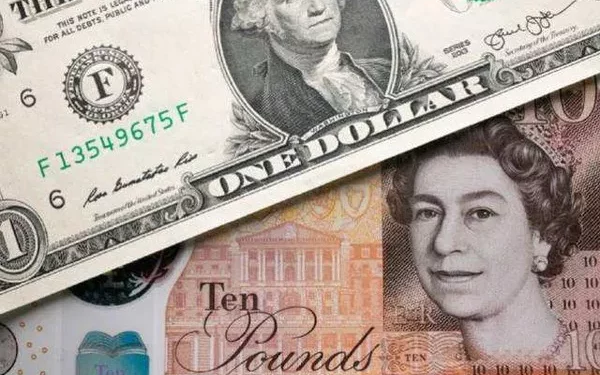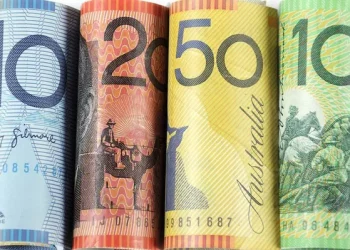The British Pound Sterling, often referred to simply as the pound, is the official currency of the United Kingdom (UK) and its territories. As one of the oldest currencies still in use today, the pound plays a significant role in global finance and commerce. This article provides an in-depth exploration of the British Pound Sterling, its history, characteristics, economic impact, and its role in the modern world.
History of the British Pound Sterling
Origins and Development
The origins of the British Pound Sterling can be traced back to Anglo-Saxon England, where silver pennies were first minted around the 8th century. Over time, the penny evolved into various denominations, and by the late Middle Ages, the pound sterling emerged as the primary unit of currency.
Standardization and Decimalization
In 1489, King Henry VII established the troy pound as the standard measurement for the pound sterling. The pound was divided into 240 silver pennies, or pence, which remained the basis of the currency until decimalization in 1971. The modern pound is now divided into 100 pence.
International Influence
During the British Empire’s peak in the 19th and early 20th centuries, the pound sterling became a dominant global reserve currency. It was widely used in international trade and finance, contributing to the UK’s economic power and influence.
Characteristics of the British Pound Sterling
Currency Symbol and Code
The symbol for the British Pound Sterling is £, derived from the Latin word “libra,” which means balance or scales. The currency code used in financial markets is GBP, which stands for Great British Pound.
Denominations
The pound sterling is issued in both coins and banknotes. Commonly used coins include 1p, 2p, 5p, 10p, 20p, 50p, £1, and £2. Banknotes are issued in denominations of £5, £10, £20, and £50, each featuring historical figures and landmarks significant to British culture and history.
Monetary Authority
The Bank of England, established in 1694, serves as the central bank responsible for issuing and regulating the British Pound Sterling. It controls monetary policy, manages currency circulation, and maintains price stability and financial stability in the UK.
Economic Impact and Importance
Global Reserve Currency
Despite the decline of the British Empire, the pound sterling remains a major global reserve currency. It is widely held by central banks and financial institutions around the world as a store of value and a medium of exchange.
Foreign Exchange Market
The British Pound Sterling is actively traded in the foreign exchange (forex) market, where it is one of the most traded currencies. Its value fluctuates based on economic data, geopolitical events, and market sentiment.
Impact on Trade and Investment
As a stable and widely recognized currency, the pound sterling facilitates international trade and investment. It provides certainty and stability for businesses engaged in cross-border transactions and foreign investments.
Economic Indicators
The strength of the British Pound Sterling is closely monitored by economists and policymakers as an indicator of the UK’s economic health. Exchange rate movements can affect inflation, exports, imports, and overall economic growth.
See Also: What Country Uses Pound Sterling?
Current Use and Circulation
Circulation and Usage
The British Pound Sterling is widely used throughout the UK for daily transactions, retail purchases, and online payments. It is accepted by businesses and merchants across England, Scotland, Wales, and Northern Ireland.
Legal Tender
In the UK, the pound sterling is recognized as legal tender, which means it must be accepted as payment for debts and obligations unless both parties agree otherwise. However, there are limitations on the acceptance of large denominations for certain transactions.
Digital Payments and Innovation
The rise of digital payments and fintech innovation has led to the development of electronic payment systems that facilitate pound sterling transactions online and through mobile devices. These technologies have enhanced convenience and accessibility for consumers and businesses alike.
Factors Affecting the Value of the British Pound Sterling
Economic Factors
Economic indicators such as GDP growth, inflation rates, employment data, and trade balances influence the value of the pound sterling. Strong economic performance typically strengthens the currency, while economic uncertainty or recessionary pressures may lead to depreciation.
Monetary Policy
Decisions made by the Bank of England regarding interest rates, quantitative easing, and other monetary policy tools can impact the pound sterling’s value. Tightening monetary policy tends to strengthen the currency, while easing measures may weaken it.
Political Stability
Political stability and government policies play a crucial role in determining investor confidence and the perceived risk associated with holding the pound sterling. Political uncertainty or geopolitical tensions can lead to currency volatility.
External Factors
Global events, such as Brexit negotiations, international trade disputes, and changes in global commodity prices, can affect the value of the pound sterling. Market sentiment and investor expectations also influence currency movements.
Future Outlook and Challenges
Brexit and Economic Uncertainty
The UK’s decision to leave the European Union (EU), known as Brexit, has introduced significant uncertainty and challenges for the British economy and the pound sterling. Negotiations over trade agreements, regulatory frameworks, and immigration policies continue to impact market sentiment and currency volatility.
Technological Advancements
Advancements in financial technology (fintech) and digital currencies, including central bank digital currencies (CBDCs), could reshape the landscape of global finance and payments systems. The Bank of England is exploring the potential issuance of a digital pound.
Global Economic Trends
The pound sterling’s future value will depend on global economic trends, including shifts in global trade patterns, geopolitical developments, and efforts to address climate change and sustainability issues.
Maintaining Competitiveness
To maintain its competitiveness and role in the global economy, the UK must continue to promote economic growth, innovation, and financial stability. Policies that support business investment, trade diversification, and technological innovation will be critical.
Conclusion
The British Pound Sterling stands as a symbol of the UK’s economic history, stability, and global influence. Despite challenges and uncertainties, it remains a resilient currency with a pivotal role in international finance and commerce. Understanding its origins, characteristics, economic impact, and factors influencing its value provides valuable insights into the dynamics of modern financial markets. As the UK navigates through economic changes and global challenges, the pound sterling continues to evolve, adapting to new technologies and market realities while retaining its fundamental importance in the global monetary system.
Related Topics:

























